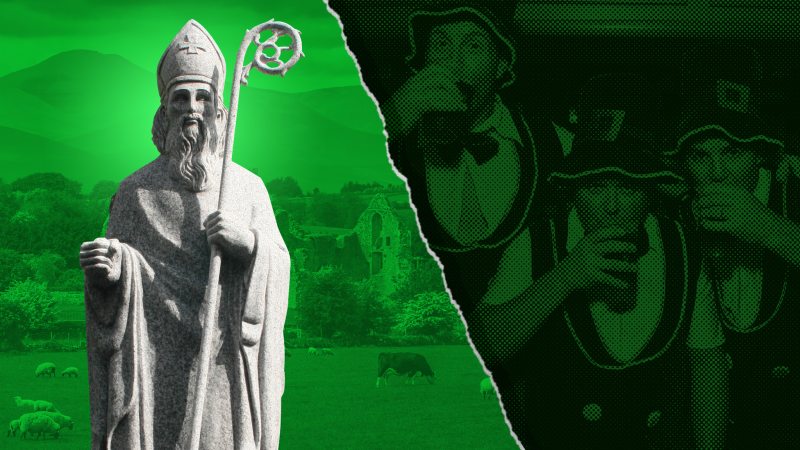
By Andie Alexander
As you likely know, Friday last was St. Patrick’s Day, so, of course, many people were donning green apparel, drinking green beer, etc. As St. Patrick’s Day is one of my favorite holidays, I’ve never put much thought into the whole “green thing.” Growing up, I remember my elementary school teachers encouraging us to wear green every March 17th so that we didn’t get pinched! (And yes, you were fair game for a pinching if you weren’t wearing green — grade school kids can get a little too into the free-license to pinch, i.e., sanctioned violence one day a year.)
While jokingly discussing the necessity of wearing green on St. Patrick’s Day, I began to wonder why we were wearing green and decorating with shamrocks. Having assumed it had to do with the rich emerald green landscape of Ireland, I had never thought twice about it. But now, insisting that green must be worn, I decided to “go to Google” to find out what was up with all the green. Continue reading “Green, St. Patrick’s Day, and the Politics of Identity”


